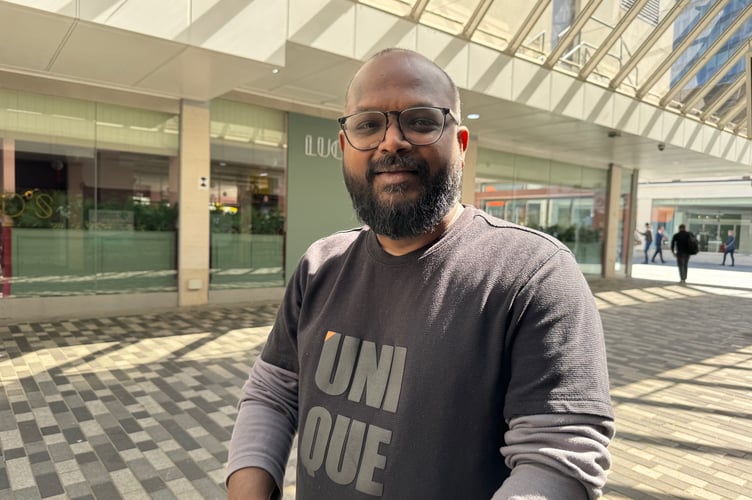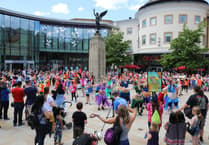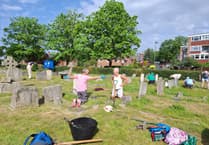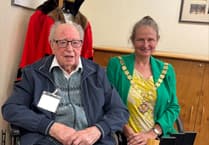Woking Borough Council has repeatedly been in the headlines for the wrong reasons after news first began to break that it was heading towards financial ruin.
Years of borrowing to regenerate the town centre and Sheerwater, without setting aside enough money to repay it all, came home to roost and left the local authority with debts expected to reach £2.6 billion and a deficit of more than a billion.
The result of the failed investment strategy has left towers standing unused and towns sitting half-vacant and derelict.
Residents have been hit with 10 per cent tax rises and a cutting of services as the council looks to get out of the mess.
The vast majority of the borrowing took place between 2016 and 2019 when Woking Borough Council was under Conservative control.
The 2016 elections returned 17 Tory councillors, seven Liberal Democrats, three Labour and three independents.
The gap between the two leading parties closed in 2019 with the Conservatives on 14 and the Lib Dems on 10 – and as recently as 2021 the Conservatives were the largest party with 13 seats.
That all turned in 2022 when the Lib Dems flipped the borough taking 16 seats to the Tory’s eight.
The margin grew again in 2023 as the financial details were being laid bare with the Liberal Democrats strengthening their hold with 20 seats and the Tories on four.
That leads us to this Thursday, May 2, with the Conservatives’ remaining councillors all up for election.

The Local Democracy Reporting Service visited the town this week to speak to the residents living with the inflation-busting tax rises, cuts to services, and a half-built town where developers continue to win planning permission for more towers.
Were people still blaming previous administrations for the borough's woes, what were the biggest issues facing residents, and how important is a strong and credible opposition for holding power to account?
Christine Lavender said she was aware of the upcoming elections and planned to vote but not for the party she’s supported her entire life.
She told the LDRS: “My parents voted Conservative and I’ve always voted Conservative, it’s sort of tradition” but added she was not going to do that any more.
“The most important thing here is to sort out the debt. We don’t care who it is but they have to sort out what the problem is.
“The big issues locally are how the council spends its money and the closing of the public toilets.
“They need to sort out their priorities for the people and community because that is who they’re serving.”
She said Woking Borough Council wasn’t the only borough that was broke: “It’s a national issue with everyone else short of money.”
Woking Borough Council has 30 members representing 10 wards.
Residents elect one councillor for each ward every year, with the fourth year taken off for county council elections.
Turnout varies across the wards with only about 30 to 40 per cent of the electorate taking part.

Gopinath Kalaiarasan moved to Woking three years ago as a research fellow at the University of Surrey. Mr Kalaiarasan was in the town with his young son to use the library.
He told the LDRS changes to council funding were already noticeable.
He said: “There used to be a lot of events in the square when we first moved here, even during Covid, there used to be lots of events.
“They’re still doing it but it’s not as good as 2020.”
“I’m aware of the funding problems”, he said, adding that it had a “big impact” on services. He praised the county council-run library and the extras, such as rhyme time that it was still able to run.
Carlee Rapley lives in Old Woking and said she only comes into the town centre now out of necessity.
She said she had no plans to vote. “They’re not doing what they’re supposed to be doing. They’re not working for us.
“The monstrosity that they built and not opened and you can see it from Guildford, it’s a monstrosity, it’s really poor,” she added pointing at the Victoria Place development.
“There’s nothing they can really do going forward, it’s rubbish.
“Old Woking is far better than this, it has still got a local feel to it.”
Voting takes place on May 2 with the counting process starting at 9.30am the following morning.
Counters are split into teams and verify one polling station’s ballot papers at a time, and totals are then checked against the ballot paper accounts.
Verification should take until noon at which point the tellers will begin the count. The council expects results to start being announced from around 3.30pm.

Ian Kidson had already voted by post and was very interested in the outcomes of the ongoing financial investigations at the council.
He said: “We don’t know full details of what happened inside the council yet.
“It seems worrying what happened here.
“How does a council run up £2bn in debt when it only gets so little…
“It just beggars belief.
“I want to be able to understand how that was possible, but I don’t.
“As for a way forward, that is really difficult, as the level of debt is astronomical.”
He added: “The big impact is going to be on services. The toilets in Horsell have been closed, a lot of the services are really struggling.
“There will be a lowering of services and it seems that lot of their funding has gone.”
Efforts by community groups to find new money, he said, have not matched what they got before and it will be residents who suffer from the “inevitable decline”.
Mr Kidson told the LDRS he was not a Conservative voter but believed governments at all levels worked best under proper scrutiny, before adding that he would not change his vote just to create an opposition.
He said: “I'm 62 and have always lived in a country with checks and balances and that there are real risks if one party has near total control.
“Without that balance I do worry.”




.jpeg?width=209&height=140&crop=209:145,smart&quality=75)

Comments
This article has no comments yet. Be the first to leave a comment.